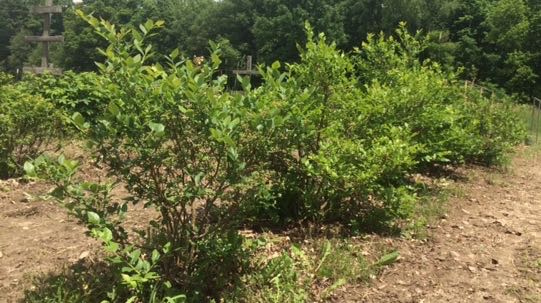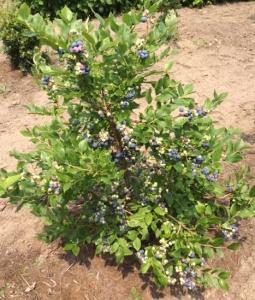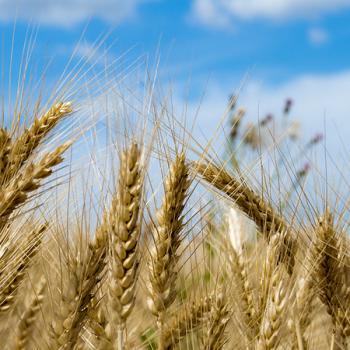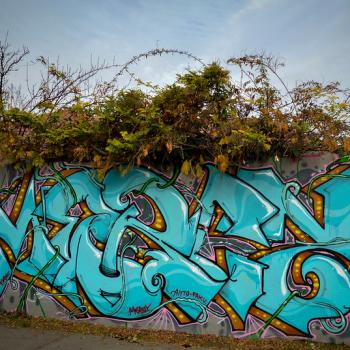
In John 15:1-2 Jesus says, “I am the true vine, and my Father is the vinegrower. He removes every branch in me that bears no fruit. Every branch that bears fruit he prunes to make it bear more fruit.” Historically, I have always understood the need for and benefits of pruning. However, it wasn’t until I became a gardener that I came to appreciate pruning in its fullness. In today’s blog, I’m going to share my experiences with pruning and how they have informed my understanding of kingdom living.
Ron Plants a Garden
Several years ago I decided to return to my farming roots and put in a garden. Farming seems to be a part of my DNA. My ancestors were Mennonites who emigrated to the U.S. in 1876 seeking religious freedom. The next three generations of Peters were farmers. Today, my parents still live on the land that my grandfather owned and farmed. So I set aside a parcel on their property and planted my garden.
Overall, things have gone very well. My berry bushes are the heart of my garden (blue, black, rasp). Each year, through research combined with some trial and error, they’ve grown and increased in fruitfulness. It’s a very rewarding experience to watch them grow and enjoy their bounty. We enjoy a symbiotic relationship. I serve them by doing all I can to promote their health and vigor. They serve me by providing fruit for me and my family to eat and enjoy.
A Rough Start
While I say that now, in the early stages I wasn’t so sure things would work out so well. In the spring of the second year, one group of bushes didn’t look that great. My blueberry bushes were struggling. Blueberries have specific soil requirements, which I thought I had addressed. However, the bushes were not thriving and had large numbers of dead twigs. By contrast, my raspberries and blackberries showed all the signs of health and vigor. I began to wonder if the garden just wasn’t conducive to blueberries.
As a researcher, my natural instinct is to learn as much as possible about anything I set my hand to. So I did a lot of reading about how to grow berries. Among other things, the literature emphasized the need for pruning to encourage growth and maximize fruitfulness. Initially, the idea of pruning made me nervous. I was afraid of doing more harm than good. What if I didn’t do it right? What if I damaged the plants? These concerns drove my reluctance.

Nevertheless, my blueberries were not doing well. So I set aside my fears and began the pruning process. Slowly and carefully, gently and selectively, I began to cut out the dead twigs. If any showed the slightest potential to spout new growth, I left them. Any that showed no potential were cut off. In truth, despite all that I had read and the assurances this provided, I wasn’t confident in the process.
Words cannot express my surprise when, in just a few days, significant new growth began to appear. In just one week my blueberry bushes looked like they had doubled in size with tender green shoots and leaves. As the season progressed, clusters of flowers began to appear. These turned into clusters of berries. That year I gathered my first crop and I’ve been getting more and more every year since then. After six years, my plants are large and all the signs point to this year’s crop being the largest ever (God willing).
An Application for God’s Kingdom
God places a high premium on fruitfulness from his people. It’s a reoccurring theme throughout scripture. This brings us back to John 15:1-2. In theory, I had no problem understanding the need for and benefit of pruning. However, now that I have been able to observe the process first hand, it has taken on a much richer meaning for me. Having seen how even a small amount of pruning produced so much growth, I can’t help but wonder what kind of Godly growth and fruitfulness would occur in my own life with just a little pruning. In the same way, how might the body of Christ, the Church, grow and become more fruitful with a bit of pruning?
The first step in pruning is identifying what needs to be pruned. This requires a biblical definition of fruitfulness as God defines it. How do we distinguish between what is alive and fruit-bearing from what is dead and/or non-fruitful? Entire blogs could be written on this, so I’ll mention a few things that I believe will help us get started.
Biblical Fruitfulness
Fruitfulness begins by knowing God’s instructions. Psalm 1 states that people who delight in the law of the Lord and meditate on it are like trees that yield their fruit is season. Meditating on the Lord’s instructions will produce the next step in fruitfulness, which is a change of heart and attitude. In Gal. 5:16-25 Paul provides a list of attitudes he calls “the fruit of the Spirit.” These fruits represent God’s priorities and values. People who learn from God and regularly reflect on what they have learned from him will see a transformation of their own priorities and values. Their attitudes will align with God’s.
Actions are the final stage of fruitfulness. In John 15:12, Jesus immediately follows his discourse on fruitfulness and pruning with a command to his disciples: love one another. While love is an attitude, a disposition toward others, it is only fruitful if it translates into action. In 1 John 3:17, the author asks an important question. “How does God’s love abide in someone who has the world’s resources, sees a brother or sister in need, and has no compassion?”
From these examples we can see that fruitfulness as God defines it is identifiable by the following characteristics:
- Delighting in and reflecting on God’s instructions.
- Transformed attitudes, values, and priorities that are the same as God’s.
- Actions that show love and compassion by using our resources to help our brothers and sisters in need.
Since this is the fruit, pruning is the process by which we get rid of those things that prevent fruitfulness.
The Things to Prune
There are two things that can compromise the health, vigor, and fruitfulness of fruiting plants: dead branches and unfruitful live branches. Dead branches take up space that block the growth of new live branches. Living but unfruitful branches draw resources away from the plant while not contributing anything to the plant. These are resources that could go into the fruitful branches.
As individuals and corporately as the body, we have to identify those things that compromise our fruitfulness. What are the dead things that take up space and block the new growth? What are the things that may be living but sucking valuable resources and not giving anything back in return? We must prayerfully, biblically, and communally identify these things. Once we have, we can take action and begin the pruning process.
The Things that Hold Us Back
Just as I was initially afraid of pruning my berry bushes, so too I think as believers we fear the pruning process, both personally and corporately. I think these fears are the result of a variety of motives that feed our reluctance. Like I felt with my bushes, we fear doing harm. Sometimes, I think we’re reluctant to accept the evidence before our eyes that clearly reveals something (or even someone) as dead and unfruitful. We don’t seem to realize the degree that this dead wood is compromising the potential for growth and fruitfulness, both in ourselves and in the body of Christ. However, as Jesus said, God prunes because he desires fruitfulness. He wants us, individually and corporately, to bear fruit.
We can’t allow our own reluctance, our own discomfort, to keep us from embracing this process. My experience of pruning my berry bushes has had a powerful impact on my thinking. I routinely pray about and reflect on my own life in order effect personal pruning. My greatest desire is to bear fruit that is pleasing to God. The alternative is to be cut off, tossed out and burned up as useless (Matt 7:19, Luke 3:9, John 15:6). That is a terrifying thought.












